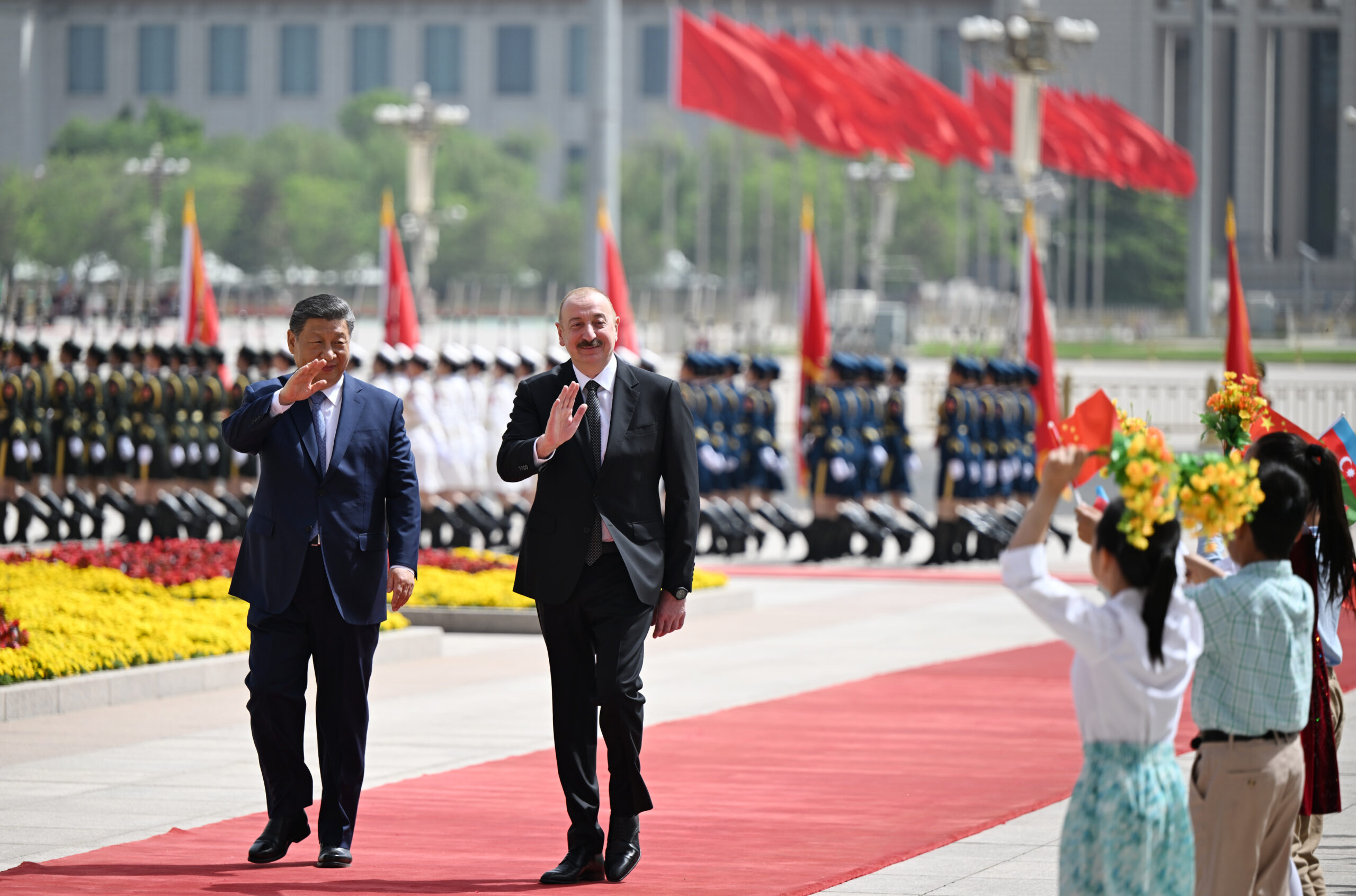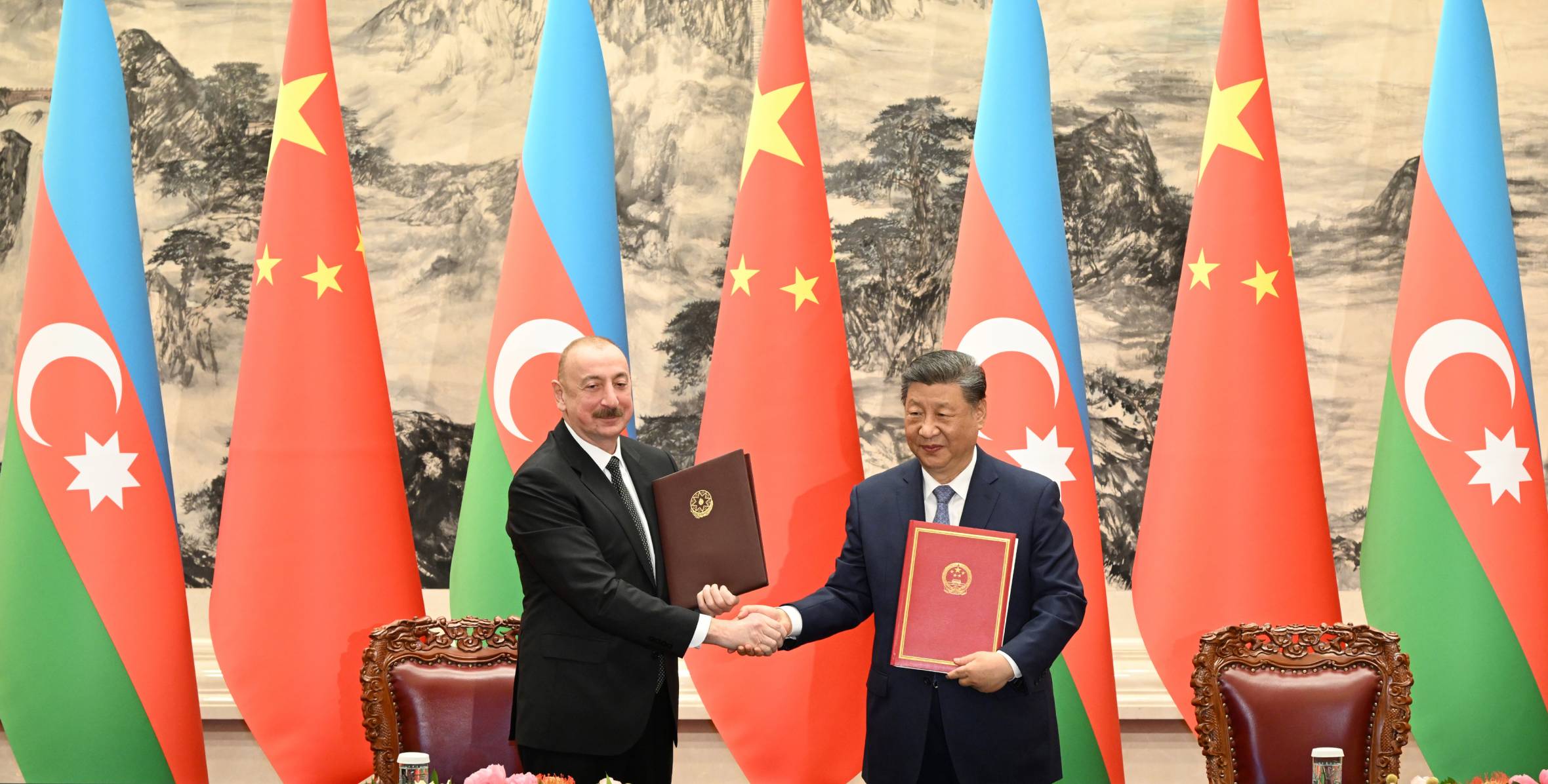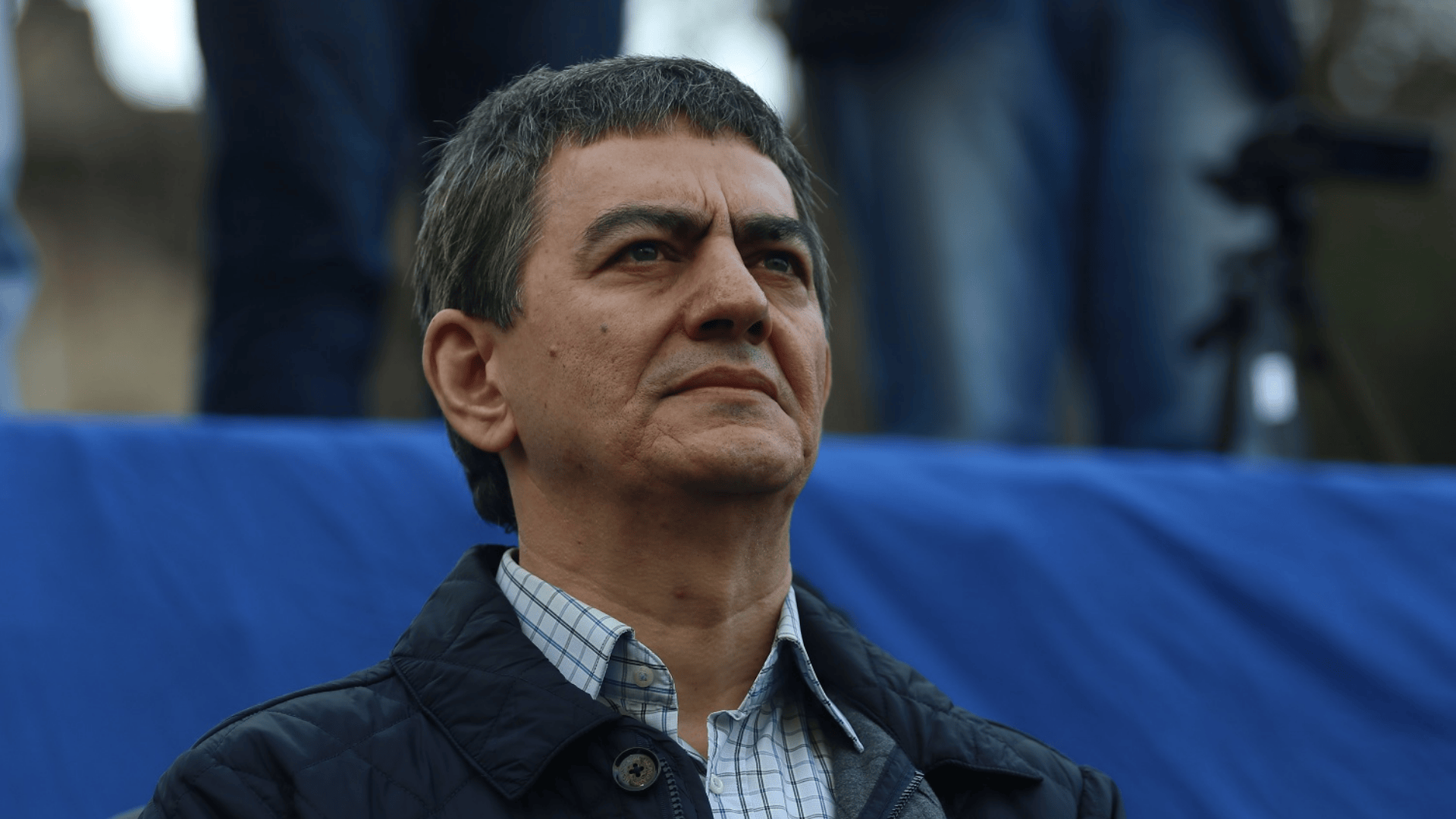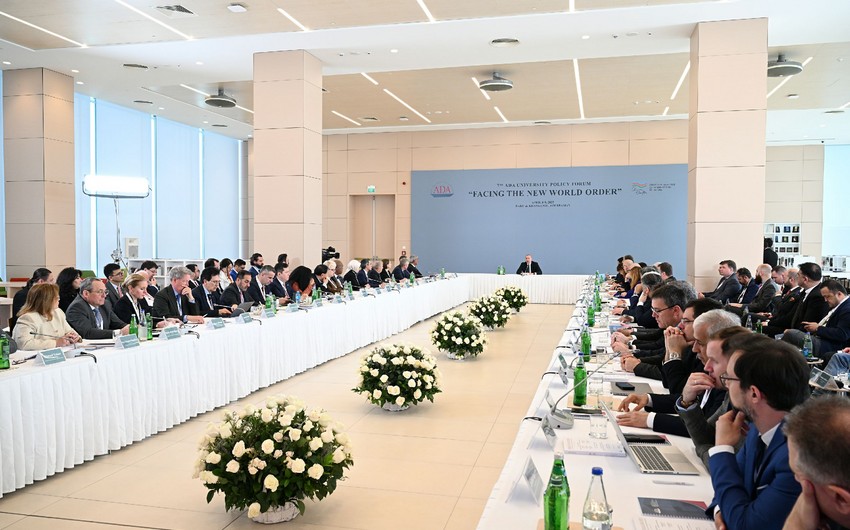Azerbaijani-Chinese relations and the SCO summit: new partnership and points of tension
Azerbaijani-Chinese relations
One of the ways Azerbaijan’s growing closeness with China is taking shape is through its bid to join the Shanghai Cooperation Organisation.
Relations between Azerbaijan and China have recently entered a new phase. In April this year, during President Ilham Aliyev’s state visit to China, the two countries established a comprehensive strategic partnership.
Talks in Beijing produced a “Joint Statement on Comprehensive Strategic Partnership” between Azerbaijan and China, along with around 20 cooperation agreements. These covered trade, investment, transport, green energy, the digital economy and the aerospace sector.
As part of the agreements, China openly expressed support for Azerbaijan’s national sovereignty and territorial integrity. In turn, Baku reaffirmed its commitment to the “One China” principle, stressing that Taiwan is an inseparable part of China and giving full backing to Beijing’s “reunification” efforts.
The SCO summit and Azerbaijan’s bid for membership
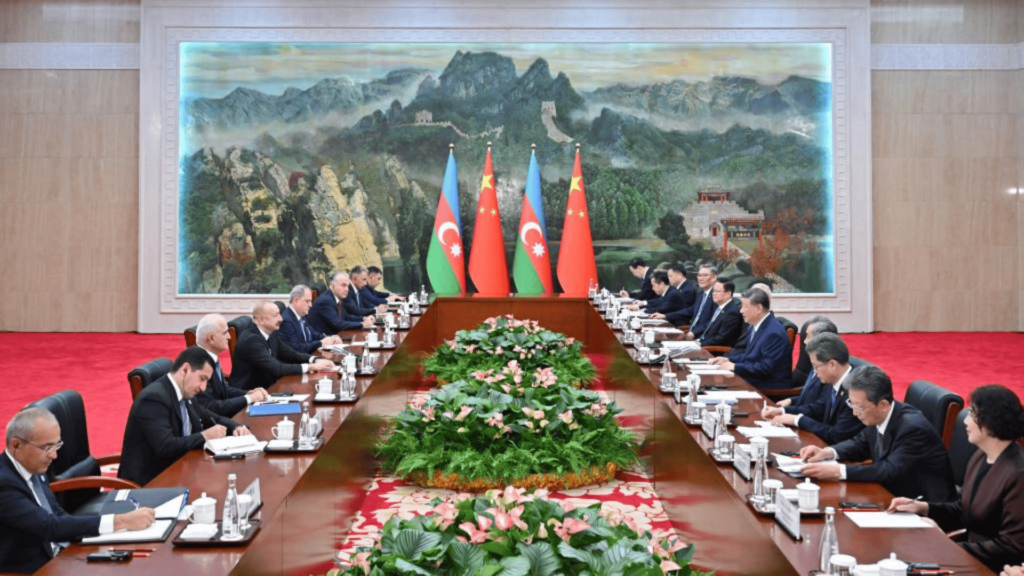
The Shanghai Cooperation Organisation (SCO) is an organisation that promotes political, economic and security cooperation across Eurasia. Its current members include major states such as China, Russia, India, Pakistan, Kazakhstan, Kyrgyzstan, Tajikistan, Uzbekistan and Iran.
Azerbaijan has held “dialogue partner” status in the SCO since 2016 and in recent years has sought to upgrade this to full membership. In 2023, it formally applied for observer status, and has since continued its push towards becoming a full member.
At the end of August this year, under China’s chairmanship, the SCO summit was held in the city of Tianjin. President Ilham Aliyev attended at the special invitation of Xi Jinping, taking part in the summit and holding bilateral meetings with the Chinese leader and several other heads of state.
On the eve of the summit, 30 August, China not only invited Azerbaijan to an official event in Tianjin but also staged a military parade and commemorative ceremonies marking the 80th anniversary of victory over fascism in China. In Baku, this gesture was seen as a symbol of the “friendship and brotherhood” between the two countries.
Azerbaijan’s blocked membership bid
Talks on Azerbaijan’s accession to the SCO were accompanied by tense diplomatic manoeuvring. During the summit, China publicly backed Baku’s bid for full membership, stressing that it was in line with the “Shanghai spirit” of mutual trust and multilateral cooperation.
But admitting new members requires consensus, and India broke that consensus. According to leaks in the media from diplomatic sources, India opposed granting Azerbaijan full membership for the second time.
The government-affiliated Azerbaijani channel AnewZ also reported: “India has again opposed granting Azerbaijan full SCO membership.”
While New Delhi did not give detailed official explanations, officials familiar with the matter said the move was linked to India’s position on Islamabad. They noted that although India generally insists bilateral conflicts should not affect the SCO, its main objection stemmed from Azerbaijan’s close ties with Pakistan. This stance is seen as running counter to the organisation’s principles of multilateral diplomacy.
Pakistan is regarded as a strategic ally of Azerbaijan. During the Second Karabakh war, Islamabad openly supported Baku, and it remains the only country that does not recognise Armenia.
India, meanwhile, has in recent years stepped up its engagement with Armenia. New Delhi has signed military-technical cooperation agreements with Yerevan and is seeking to build influence in the South Caucasus.
Experts point out that India and Armenia held their first joint military exercises in 2023. The invitation of Armenian prime minister Nikol Pashinyan to the G20 summit, along with his bilateral contacts with Narendra Modi, also highlight New Delhi’s growing focus on Yerevan. Against this backdrop, analysts underline the weight of the “Pakistan factor” in India’s decisions on Azerbaijan.
As a result, at the 2025 summit in Tianjin, Azerbaijan failed to secure full SCO membership.
“India blocked our accession to anti-Western coalitions”
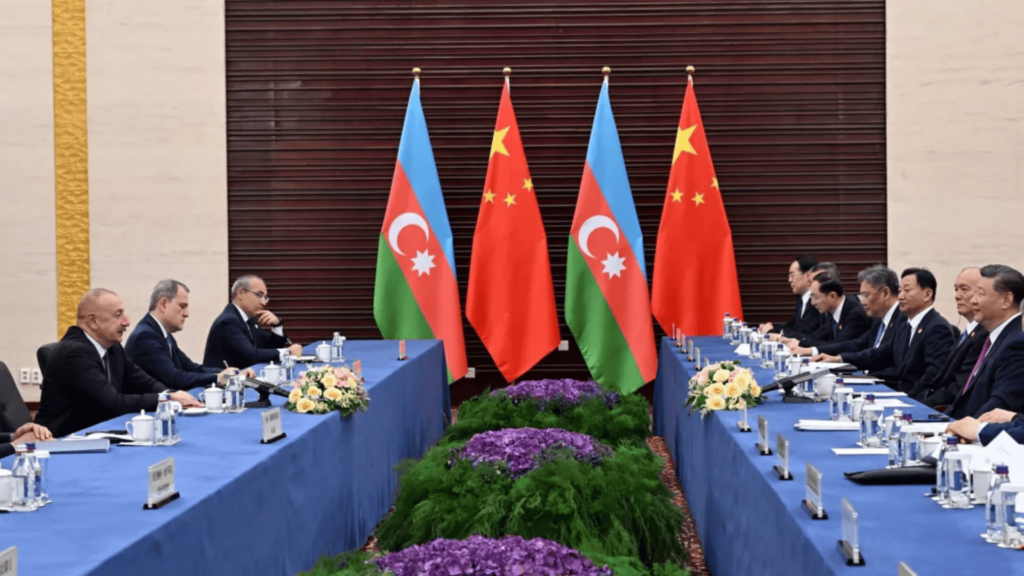
For many, this came as no surprise, as a similar situation had already played out in the BRICS grouping.
At the 2023 BRICS summit in Johannesburg, reports circulated that India opposed Azerbaijan’s candidacy during talks on admitting new members. As a result, Azerbaijan was left off the list.
From 2024, countries such as Iran, Saudi Arabia, the UAE, Egypt, Argentina and Ethiopia joined BRICS, but Azerbaijan remained on the sidelines. While officials in Baku offered no explanation, Ali Karimli, leader of the Azerbaijani Popular Front Party, argued that without India’s veto “Azerbaijan would have joined BRICS last year, and the SCO this year.”
In his view, New Delhi’s stance effectively blocked Azerbaijan’s entry into what he described as “anti-Western, anti-democratic coalitions.”
Diverging views: government, opposition and analysts
The SCO summit and Azerbaijan’s closer ties with China have prompted mixed reactions at home and abroad. The government’s stance remains consistently positive. Officials argue that taking part in forums such as the SCO boosts Azerbaijan’s international standing and strengthens its multi-vector diplomacy.
According to the official line, cooperation within the SCO supports Azerbaijan’s strategic goal of becoming a transport, energy and trade hub between Asia and Europe.
Regular invitations for president Ilham Aliyev to attend SCO summits are presented as proof of the country’s growing role on the global stage.
Officials also stress that Azerbaijan, “pursuing a balanced pro-Western and Eastern policy,” seeks to safeguard its interests in a changing world order. For example, just weeks before the SCO summit – on 8 August in Washington – the leaders of Azerbaijan, Armenia and the US signed a trilateral “Washington Declaration”. Baku points to such parallel diplomatic successes as evidence of its ability to build constructive relations with both West and East at the same time.
The opposition and critical voices, however, express concern about Azerbaijan drifting towards alliances led by authoritarian regimes.
“It is dangerous to tie the fate of our country to such lucky coincidences”

Ali Karimli, chairman of the Azerbaijani Popular Front Party, described the SCO and BRICS as “organisations led by Russia and China, serving as centres of resistance to the West and to democratisation by authoritarian and totalitarian regimes.”
In his view, strengthening Azerbaijan’s role in what he called an “international club of authoritarians” runs counter to the country’s national interests. Karimli said:
“Ilham Aliyev’s drive to lead Azerbaijan not, for example, towards the European Union, but instead into BRICS and the SCO is yet more proof that his ruling interests are in complete contradiction with the nation’s interests.”
The opposition leader argued that India’s veto in effect spared Azerbaijan from deeper involvement in an “anti-Western, anti-democratic bloc.” But he also warned that “the fate of our country cannot depend on such lucky coincidences,” adding that Azerbaijani society must take its future into its own hands to prevent the government’s will from clashing with that of the people.
“Azerbaijan’s support for Beijing’s position is a betrayal of Turkic brotherhood”
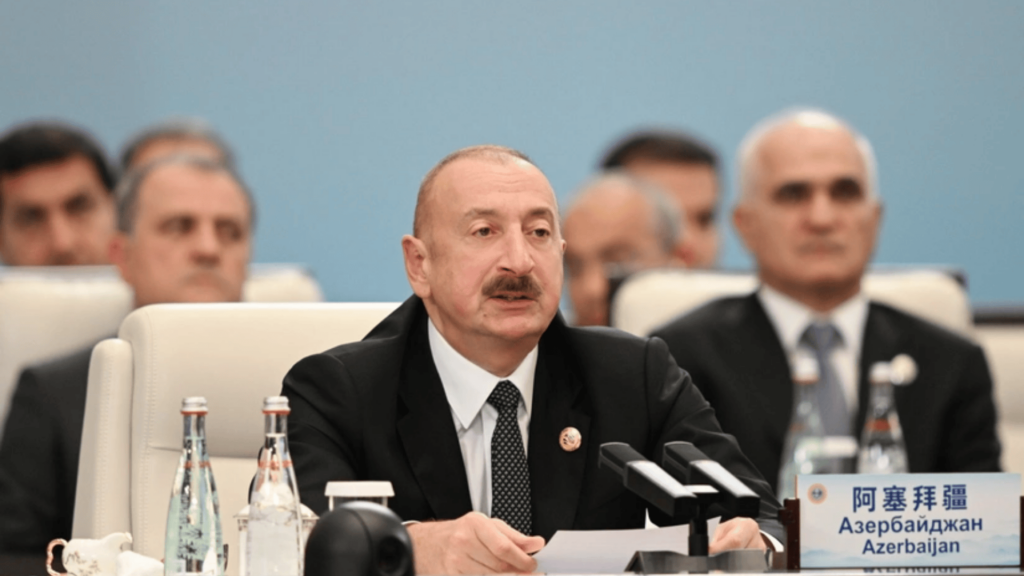
International observers and analysts have offered mixed interpretations of Azerbaijan’s eastward turn. Some international human rights groups, noting the country’s backsliding on rights, see Baku’s outreach to powers such as China and Russia – which do not press for democratic reforms – as a pragmatic choice.
The Washington-based East Turkistan Government in Exile, representing the Uyghur Turkic diaspora, sharply condemned president Ilham Aliyev’s open endorsement at the Tianjin SCO summit of Beijing’s policies in Xinjiang (East Turkistan).
Salih Hudayar, the organisation’s foreign affairs chief, said: “At a time when Uyghurs and other Turkic peoples are facing horrific violence, Azerbaijan’s support for Beijing’s position is a betrayal of Turkic brotherhood.”
Calling the SCO “a repressive platform created by China to smother the national question of East Turkistan,” the group urged Azerbaijan not to become complicit in Beijing’s Uyghur policy. Such criticism could reinforce a Western narrative that Azerbaijan is “taking the side of regimes that suppress their own people’s freedoms.”
‘Azerbaijan’s tilt towards China stems from its crisis with the West’
Other foreign experts interpret Baku’s move through the lens of geopolitical realism. Analysts of the South Caucasus note that Azerbaijan’s relations with the West have cooled in recent years – largely because of limited democratic reform at home and the government’s harsh response to human rights criticism.
An analysis by the Baku Research Institute stressed that this erosion of trust with the West is pushing the authorities to seek alternative international alliances. Experts cited in the study argued that “the upgrade of Azerbaijan–China ties to the level of strategic partnership reflects a crisis in Baku’s relations with the West.”
Other independent observers point out that “Azerbaijan has not abandoned the West – it is simply recalibrating its security and development agenda in line with its strategic interests.”
In other words, from this perspective, by joining the SCO Baku does not mean it is turning away from NATO, and by deepening ties with China it is not abandoning gas supplies to Europe – rather, it is trying to maximise its gains along parallel tracks.
The advantages of relations with China for Azerbaijan
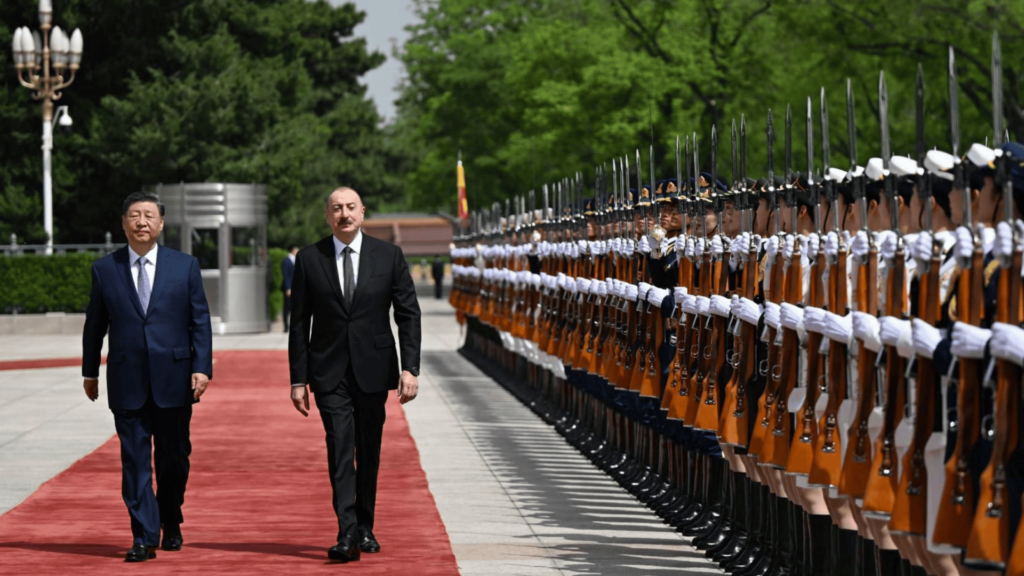
The comprehensive partnership promises mutual economic benefits for both Azerbaijan and China. In 2024, trade between the two countries reached $3.74bn, a rise of more than 20% on the previous year.
China is now Azerbaijan’s fourth-largest trading partner. Under the new strategic cooperation framework, Beijing is expanding investment in Azerbaijan’s non-oil sector, with planned projects in renewable energy (including a solar power plant in Gobustan), high technology, metallurgy, transport and other areas.
Baku hopes the partnership will help diversify its economy and strengthen its role in global supply chains. For China, Azerbaijan offers a strategic advantage as a key link in the Middle Corridor – a trade route connecting China and Europe while bypassing Russia.
The corridor runs through Central Asia, the Caspian and the South Caucasus, providing Beijing with an alternative westward route whose importance has grown in the wake of the war in Ukraine.
In recent years, Azerbaijan has modernised infrastructure along the corridor, expanded the capacity of the Baku port at Alat and streamlined transit procedures to ensure fast and unhindered cargo flows from east to west.
According to president Ilham Aliyev, the volume of cargo moving along the Middle Corridor through Azerbaijan has grown by almost 90% since 2022. Baku believes that greater investment from Chinese companies will boost the corridor’s competitiveness and signal Beijing’s long-term commitment.
The two countries are also drawing closer politically. Aliyev has stressed that Azerbaijan is a reliable partner for China in the region, contributing to regional and international peace and security while jointly developing major economic, transport and energy projects.
Officials note that Azerbaijan was among the first to back the “Belt and Road” initiative and has since implemented several projects under its framework. Baku has also declared its support for Xi Jinping’s “Global Development”, “Global Security” and “Global Civilisation” initiatives, pledging to work with China to promote fairness in international relations.
Such political solidarity strengthens Azerbaijan’s image as a dependable partner for China on the world stage. With Beijing’s support, Baku also hopes to speed up its long-delayed bid to join the World Trade Organization. In 2024, China signalled its readiness to assist Azerbaijan on the path to full WTO membership.
‘Azerbaijan is not aiming for EU membership’
Azerbaijan’s rapprochement with China is unfolding in both global and regional contexts. With prospects for integration into the European Union seen as limited, Baku is seeking to build balanced, multilateral ties with the world’s major power centres. For many years, the country has chaired the Non-Aligned Movement while also cooperating with Nato and Europe on energy security. But Azerbaijan is neither an EU candidate state nor part of any western bloc.
According to analysis by the Carnegie Endowment, in recent years Azerbaijan’s leadership has openly expressed interest in joining new multilateral platforms such as BRICS, adding a new dimension to its international posture.
“As opposed to its neighbours, Azerbaijan is not aiming for membership of the European Union and is not tied to any major western bloc,” noted political analyst Zaur Shiriyev.
Baku describes its foreign policy as “multi-vector,” stressing that it seeks to develop partnerships with both West and East in parallel.










